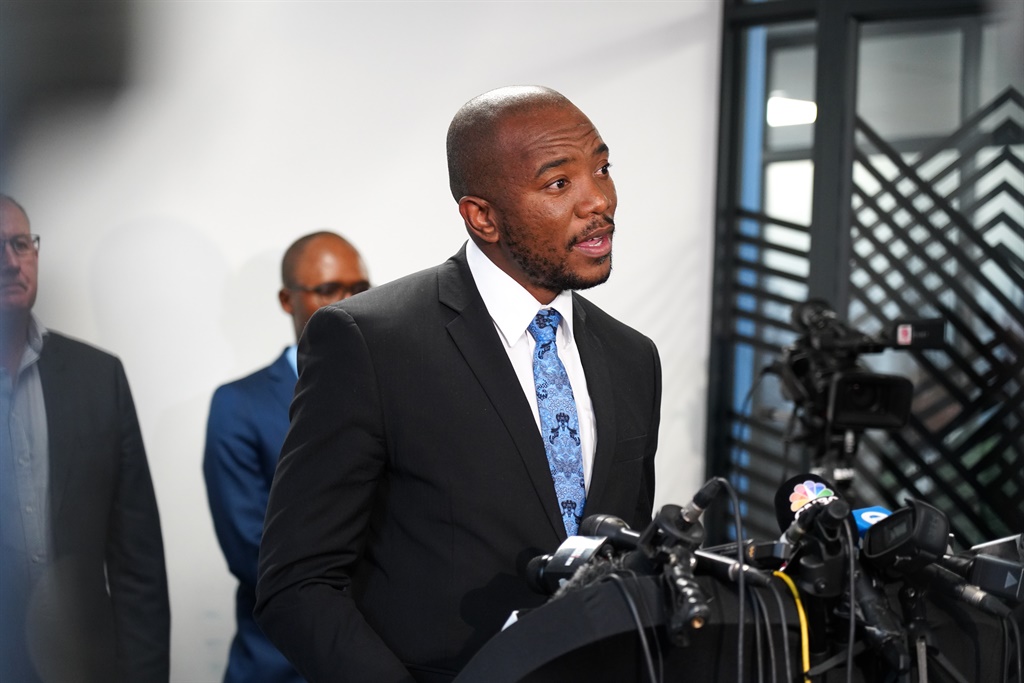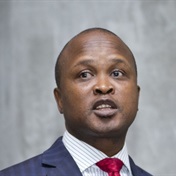
For South Africa to effect transparency about the use of money in politics, lobbyists will have to be properly regulated and identified, writes Ralph Mathekga.
How do we distinguish a non-government organisation (NGO) from a lobby institution? In South Africa it is difficult to make this distinction because our laws do not define a lobby institution. All we know is that NGOs generally act in the public interest, and often on behalf of those who are vulnerable in society.
Beyond this it is difficult to tell. The majority of NGOs can fit the profile of acting in the public interest, yet they can do some lobbying, as recently alleged.
Before resigning from his position as the leader of the Democratic Alliance (DA), Mmusi Maimane criticised the Institute of Race Relations (IRR), an NGO, for "trying to influence internal politics" of the DA.
In Maimane's view, the IRR as a NGO is not supposed to influence internal party matters, including the outcome of leadership contests. Because it expresses preferences and works towards its realisation, Maimane regards the IRR as lobbyists. The IRR was not happy with that characterisation; it is only AfriForum that seems to embrace being labelled a lobby group. Other organisations tend to see the term lobby in a negative sense.
I am not very interested in the specific story of the IRR. What interests me is that in the complicated political system that involves non-government actors, including not for profit foundations, it is important that we are clear as to which organisation should be recognised as what.
Having worked in the NGO sector in the past, I am aware that this is a sensitive area given the high level of mistrust in our politics. I am of the view that the majority of the NGOs and foundations fall within the category of institutions that are concerned with the public interest.
However, as our democracy advances, we should address the issue of organisations that propagate a chosen policy position, perhaps even a legislation, whilst receiving funds for achieving a set of agreed upon political goals. Such organisations would fall within the category of lobbyists.
The word lobby is not really part of South Africa's policy discourse. The Collins dictionary defines it as "as someone who tries actively to persuade a government or council that a particular law should be changed or that a particular thing should be done".
When it comes lobbying, the work entails the achievement of a specific set of results; it could be legislation or an internal party leadership outcome. Lobbyists commit to specific results; hence they are often hired for a specified job that requires specific results.
Currently, any organisation can undertake the work of lobbyists, although our system and laws do not recognise political lobbying as a profession that needs to be regulated. Political lobbying for specific political goals will certainly continue in South Africa, which means we need to regulate the conducts and the sector.
With increasing use of money in politics, it will be necessary to distinguish lobbyist organisations or institutions from NGOs concerned with the public interest.
Soon we will need laws that regulate lobbying work and activities in our politics. It would be tragic if South Africa fails to recognise that different laws and even tax rules should apply to lobbying organisations while NGOs should be exempt from such.
For South Africa to effect transparency about the use of money in politics, lobbyists would have to be properly regulated and identified. This is necessary to protect the integrity of our democracy and to ensure that voters always understand who is funding or sponsoring political campaigns pursued by lobbyists. If we do not regulate political lobbying, we might have to ban it altogether.
It will be difficult if not impossible to ban lobbying in politics; it is more realistic to consider wider regulation. If lobbying is not regulated, it will negatively impact upon democracy, particularly the relationship between voters and political parties.
- Dr Ralph Mathekga is a political analyst and author of When Zuma Goes and Ramaphosa's Turn.
Disclaimer: News24 encourages freedom of speech and the expression of diverse views.The views of columnists published on News24 are therefore their own and do not necessarily represent the views of News24.




 Publications
Publications
 Partners
Partners























